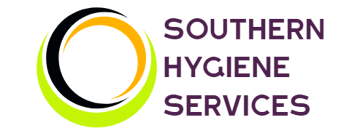Creating a Safe Learning Environment
The Importance of Indoor Air Quality in Schools


At Southern Hygiene Services, we believe that the learning environment extends far beyond textbooks and digital resources. It encompasses the very air students and staff breathe. We recognize that a school's indoor air quality (IAQ) is a critical determinant of health, well-being, and academic success. While the recent pandemic underscored the importance of adequate ventilation in mitigating the spread of airborne pathogens, the reality is that the significance of clean air in educational settings has been scientifically established for decades.
Delving Deeper into the Scientific Foundations:
The science behind IAQ is complex and multifaceted, involving a range of pollutants and their physiological impacts:
The Dynamics of Aerosol Transmission: Viral transmission, particularly of respiratory viruses like those responsible for COVID-19, occurs primarily through airborne aerosols. These microscopic particles can remain suspended in the air for extended periods, especially in poorly ventilated spaces. Research, exemplified by studies from EMPA, has demonstrated a direct correlation between elevated carbon dioxide (CO2) levels, a proxy for inadequate ventilation, and increased infection rates. This is due to the accumulation of viral aerosols, leading to heightened exposure.
The Insidious Threat of Particulate Matter (PM): Urban schools are often situated in areas with high concentrations of PM2.5, fine particulate matter capable of penetrating deep into the respiratory system. Organizations like the World Health Organization (WHO) and UNICEF have published extensive research linking PM exposure to a spectrum of adverse health effects, including respiratory illnesses, cognitive impairment, and long-term cardiovascular complications. Children, with their developing respiratory systems and higher metabolic rates, are disproportionately vulnerable to these pollutants.
The Complexities of Volatile Organic Compounds (VOCs): Schools are potential sources of a wide array of VOCs, emitted from cleaning agents, art supplies, and even building materials. These compounds can trigger a range of symptoms, including headaches, dizziness, and respiratory irritation. Chronic exposure to low levels of multiple VOCs can contribute to "sick building syndrome," a condition characterized by nonspecific health complaints among building occupants.
The Physiological Vulnerability of Children: Children's bodies are still undergoing development, rendering them more susceptible to the detrimental effects of airborne toxins. Their relatively larger lung capacity, coupled with higher breathing rates, results in a greater intake of pollutants per unit of body weight. Furthermore, younger children spend a significant portion of their time close to the floor, increasing their exposure to settled dust and allergens. Research has also linked childhood exposure to air pollutants with increased risk of chronic diseases later in life.
The impact of CO2: Elevated CO2 levels directly impact cognitive functions. Research shows that higher levels of CO2 in classrooms negatively affect the ability to concentrate, and therefore learning.
Southern Hygiene Services: A Science-Driven Approach:
At Southern Hygiene Services, we adopt a holistic, science-driven approach to IAQ management:
Comprehensive HVAC System Analysis and Optimization: We conduct thorough assessments of existing HVAC systems, evaluating ventilation rates, filtration efficiency (including HEPA 13 filters), and maintenance protocols. We then develop customized optimization strategies to ensure optimal air exchange and pollutant removal.
Real-Time Air Quality Monitoring and Data Analysis: We deploy advanced air quality monitoring systems, including CO2 sensors and particulate matter analyzers, to provide real-time data on IAQ parameters. This data enables us to proactively identify and address potential IAQ issues.
Strategic Implementation of Portable Air Purification Systems: In classrooms where HVAC system upgrades are not immediately feasible, we recommend and implement portable air purifiers with appropriate clean air delivery rates (CADR) to achieve optimal air changes per hour.
Specialized Dust and Allergen Mitigation Services: We offer specialized cleaning services designed to minimize dust and allergen accumulation, particularly in high-traffic areas and spaces frequented by young children.
Education and Consultation: We provide education and consultation services to school administrators and staff, empowering them with the knowledge and tools to maintain optimal IAQ.
The Tangible Benefits of Superior IAQ:
Enhanced Academic Performance: Studies have consistently demonstrated a correlation between improved IAQ and enhanced cognitive function, leading to improved academic outcomes.
Reduced Absenteeism: By minimizing the incidence of respiratory illnesses and allergies, we contribute to increased student attendance.
Improved Well-Being: A clean and healthy indoor environment promotes the overall well-being of students and staff, creating a more conducive learning atmosphere.
Long term health of students.
At Southern Hygiene Services, we are dedicated to creating healthy and sustainable learning environments. We combine scientific expertise with practical solutions to ensure that every student has the opportunity to thrive. Contact us today to learn how we can help your school achieve optimal indoor air quality.
Southern Hygiene Services
Phone: +64 220 921 965
Email: info@southernhygiene.co.nz
© 2025. All rights reserved.
We provide comprehensive solutions for all your cleaning, hygiene, and supply needs. From routine cleaning to specialized hygiene services and top-quality supplies, we deliver reliable, professional service at affordable prices. We are dedicated to helping you maintain a clean, safe, and healthy environment for your business, staff, and customers.
